How do you become a nutrition coach? What do nutrition coaches do? How much do nutrition coaches earn? And what certifications do you need?
In this article, you’ll find the answers to all those questions—and many more.
But, first, a little background. After all, you might be wondering: Why should you trust what we have to say about nutrition coaching?
For starters…
Our Precision Nutrition Level 1 Certification is recognized by many as the industry’s leading certification for nutrition coaches. And to date, we’ve trained nearly 100,000 health and fitness professionals on the art and science of nutrition coaching.
So get ready: We’re going to tell you everything you need to know to become a nutrition coach. You can read it all, or if you prefer, simply jump right to your most pressing questions by clicking the links below.
What is a nutrition coach?
Nutrition coaches help people build practices that lead to improved health, body composition, and/or performance.
This requires that nutrition coaches have a deep understanding of nutrition science, including:
- The chemical makeup of macronutrients (protein, fats, and carbohydrates) and the roles they play in the body
- Vitamins, minerals, phytonutrients (from plants), myconutrients (from fungi), and zoonutrients (from animals)
- Calories, metabolism, and energy balance
- Digestion
- Water, electrolyte balance, and proper hydration
- Energy transfer, fat storage, and muscle gain
But a nutrition coach’s job is about more than vegetables and macro ratios.
Nutrition coaching is about people.
How they think. How they feel. How they live. Why they act the way they do.
As a nutrition coach, you work with real people and their real struggles, all within the messiness of their real lives.
In other words, effective nutrition coaching has more to do with behavior change psychology than it does with nutrition science.
Just have a look at the chart below. Every year, we ask thousands of new Precision Nutrition clients about their biggest nutrition challenges. Here’s what they say.
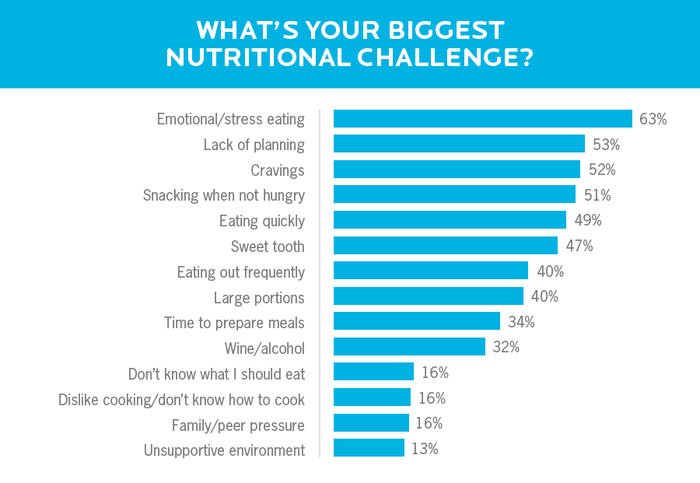
As a certified nutrition coach, you’re qualified to help clients deal with a variety of challenges.
“I don’t know what to eat” doesn’t even make the top 10.
In fact, year after year, people tend to have the same food frustrations, no matter what new “diet revolution” or “no-fail meal plan” comes along.
You might write that off as human nature. But we’d suggest another possibility:
Many nutrition experts and diet programs don’t focus enough on solving the real food problems that prevent people from making progress.
Nor do they help people build the fundamental skills they need to sustain any changes they make.
That’s why we don’t teach nutrition coaches to tell people to “eat better.” Plenty of people can do that.
The real job of a nutrition coach:
- Help people build lasting habits that allow “eat better” to become easy, consistent, and automatic.
- Support clients through the entire process, not just calculating their daily calorie needs and giving them an eating plan.
Who do nutrition coaches help?
The types of clients vary from one nutrition coach to another. Many nutrition coaches focus on a particular niche or specialty.
Here are just a few examples:
- Busy parents who want to improve the health of their whole family
- Seniors who want to improve their health
- People who find themselves marginalized or excluded from traditional health and fitness communities
- Professional, college, and Olympic athletes who are training for a sport or competition
- Adults who are looking to get back in shape
- Clients looking to feel better, mentally and physically
- Models and physique competitors who want to optimize body composition
- Runners, para-athletes, cyclists, triathletes, powerlifters, and weekend warriors trying to perform their best
Nutrition coaches aren’t limited to just one speciality, though. The principles you learn through a good nutrition coaching certification can apply to any type of client and goal.
What do nutrition coaches do?
Nutrition coaches:
- help people clarify their health, nutrition, and/or fitness priorities, values, and goals;
- work with clients to identify skills, practices, and sustainable daily actions for achieving those goals; and
- support them every step of the way.
Exactly how this looks will vary from one coach to another. Here are some of the key steps we teach nutrition coaches. It’ll give you a good idea of the many different ways nutrition coaches can work with their clients.
Step 1. Assess and gather client data.
At Precision Nutrition, we use an intake form to better understand clients, track their progress, and help them identify and clarify their goals. The data we gather includes:
- Nutrition and lifestyle knowledge and history: previous weight loss or gain, exercise experience, awareness of healthy behaviors
- Current nutrition and lifestyle habits: what they normally eat now, their schedule, food preferences, sleep
- Body composition and measurements: height, weight, body girths, lean mass, body fat, bone density
Step 2: Understand the client and “build the story.”
A nutrition coach takes the information gathered in step 1 and discerns how it fits into the context of a client’s life.
For instance, let’s say someone wants to lose 20 pounds. But several other things stand in their way: a demanding job, crummy sleep, and family stress. If you simply give them a premade 1,800 calorie meal plan, they’ll probably struggle. That’s because the meal plan didn’t address any of those other key factors, which are probably more important to their eating habits than calculating calories.
By exploring a client’s priorities, motivations, and perspectives, you can get a better handle on the small everyday actions that can, over time, result in long-term success.
For example, that client with the demanding job, crummy sleep, and family stress? They may not have the energy or time to stick to a detailed meal plan right now.
In fact, giving them that plan as-is, without additional support or addressing those other more pressing life factors, may actively make clients worse. They may get distracted from developing the skills and practices that would actually help them, and they’ll probably feel like “failures” if they can’t follow the plan.
The role of the nutrition coach: Help the client identify other steps they can take to start making progress toward goals. For instance, maybe that person can eat slowly or incorporate protein at every meal, which brings us to the next step in the process.
Step 3: Create an action plan.
Good nutrition coaches don’t tell clients exactly what to eat or what to do. Instead, they guide and support them to automate habits.
This is what drives lasting change. For someone looking to lose weight, these habits might include:
- Eating slowly and mindfully
- Choosing mostly minimally-processed whole foods
- Including lots of vegetables, especially colorful ones
- Having lean protein at most meals
- Eating until just physically satisfied, or what we call “80% full”
While these might sound boring or too obvious, the reality is this: Following this simple advice is not only highly effective for most people, it’s also incredibly hard. After all, how many folks do you know who are consistently doing all five habits well?
The bottom line: Nutrition science is important. But…
Mastering the art of lasting behavior change is what truly makes nutrition coaches successful and in-demand.
For a deeper dive into our coaching method, check out these articles:
Step 4: Choose and test one action.
People don’t just wake up one day with a new habit.
They form it by consistently practicing a series of small, strategic, simple actions. For example, someone who wants to lose weight might decide to establish a habit of eating slowly, until they’re 80 percent full. To get there, however, they might start by thoroughly noticing their first few bites.
Or let’s say they want to include more veggies at every meal. Their first action might be adding lettuce to the sandwich they usually eat for lunch most days of the week.
Step 5: Observe and monitor what happens.
Once you and a client have agreed on one action to try, you’ve essentially started an experiment. You’re gathering data again, such as:
- How consistently did your client do the assigned task?
- How well did your client do the assigned task?
- Did any challengers or questions come up?
- Was there anything that went particularly well?
You’re also tracking progress, with indicators such as:
- Body measurements
- Lab test results
- Sleep quality
- Energy levels
- Immunity
- Confidence
- Pain
- GI health
Step 6: Use outcome-based decision making.
Together, you and your client look at how well they did on their assigned action.
There is no failure in experiments, only feedback that helps you determine next steps. This is known as outcome-based decision making.
Once you and your client analyze what happened, you’ll work together to choose the next task or strategic direction of the nutrition coaching program. This can include:
- Adding a new action
- Changing the original action
- Shrinking the original action so it’s easier or more manageable (if the client struggled initially)
- Making the original action more challenging (if the client found it too easy)
You’ll then repeat this cycle, helping clients solve problems, overcome limiting factors, and modify their overall plan, as needed.
Read more: Three Easy-to-Use Coaching Tools
What’s the difference between a nutrition coach and a registered dietitian?
Registered dietitians (RD) undergo more education and training than nutrition coaches do—and this extra training qualifies them to do medical nutritional therapy. They usually work in a medical or hospital setting, in conjunction with other healthcare professionals. Some RDs also work in private practice.
The following chart outlines the sdifferences between coaches and dietitians.
| Nutrition Coaches |
Registered Dietitians |
| Have usually completed a certification, continuing education, or university coursework in nutrition and/or behavior coaching |
Have a bachelor’s degree from an accredited university |
| Have some background in biochemistry, physiology, and anatomy, along with other relevant subjects |
Must complete coursework in human physiology, nutrition science, and other sciences, finish a 900-1200 hour supervised internship, pass a comprehensive exam and, in some states, apply for a license to practice. |
| Not qualified to offer medical nutritional therapy (MNT), but can give clients tools and strategies that help them improve their daily eating. |
Qualified to offer medical nutritional therapy (MNT) for a wide array of medical conditions, through a tailored diet and close monitoring |
| Can work anywhere—online, over the phone, and/or in person. |
Often work with patients in hospitals and other clinical settings. Some work in private practice. |
| Help people form habits and change behaviors |
Prescribe specific meal plans |
Registered dietitians and nutrition coaches aren’t mutually exclusive. In fact, many registered dietitians—especially those in private practice—earn nutrition coaching certifications, too. This helps them develop the coaching skills that improve their effectiveness.
What’s the difference between a nutrition coach and a nutritionist?
This depends a lot on where you live.
In some places, the terms “nutritionist” and “nutrition coach” can be synonymous—and there are little to no regulations about what kind of training someone needs to use either term.
But in other places, the title “nutritionist” is protected by law. To use that title, someone often must undergo specific training, pass a certification exam, and apply for a license. These certification and licensing requirements vary by country and by state.
In the United States, all registered dietitians are nutritionists and can market themselves as RDNs (Registered Dietitian Nutritionists). But only nutritionists who undergo the rigorous training mentioned in the previous section can call themselves dietitians.
Consult a local lawyer to find out how regulations in your area may affect what you can and cannot call yourself.
What’s the difference between a nutrition coach and a health coach?
It depends on the certifications you’re comparing, but typically, they have a lot in common.
People generally hire nutrition coaches for help with… their nutrition. And people generally go to health coaches for help with… their health.
And since health affects nutrition and nutrition affects health, there’s often a lot of overlap.
For example, sleeping too little can trigger intense food cravings that lead someone to eat more. And eating too much for dinner can interfere with sleep.
Another example: A nutrition coach might help a client with stress management—because stress can interfere with fat loss. A health coach also might help a client with stress management—because stress can interfere with energy levels or even disease risk.
In those ways, nutrition coaches are health coaches, and health coaches are nutrition coaches. The difference lies in the framing. In fact, we believe they’re so closely related that for our Precision Nutrition Level 1 Certification, we teach nutrition and lifestyle coaching.
Do any laws limit what nutrition coaches can do?
In our Level 1 certification program, we share this Code of Ethics. It lists several best practices for nutrition coaches.
In addition to using those best practices, check the laws in the area where you reside. Though the limits will vary from one location to another, in most places nutrition coaches are allowed to make general suggestions about the kind of food that’s likely to support their clients’ goals.
But depending on your state or country, there are limits to what nutrition coaches, nutritionists, and other non-registered dietitian professionals can say about nutrition. (Learn more.)
That means nutrition coaches can’t:
- Prescribe anything in order to treat a health condition or symptom. Without medical training, coaches are legally prohibited—and, frankly, unqualified—to give that kind of advice.
- Diagnose what’s wrong with someone.
- Treat someone with medical nutritional therapy.
That may sound like a lot of “can’ts.” But nutrition coaches can still do a lot—becoming a key player in someone’s healthcare team. More about that in the section: “Why do people need nutrition coaches?”
What kind of jobs can you get as a nutrition coach?
One option: open a private practice. This allows you to make your own hours and be your own boss while doing what you love: helping others.
For some, an online nutrition coaching practice could be the perfect career for these times. Case in point: Nutrition coaches were using video conferencing and online software to coach clients long before the 2020 pandemic.
Earning your nutrition coaching certification can allow you to market yourself as a nutrition coach, sports nutrition coach, weight loss coach, food coach, and potentially a wellness and lifestyle coach, depending on your background.
While some people choose to solely work as a nutrition coach, most who get certified combine nutrition coaching with other health and fitness roles. At Precision Nutrition, graduates of our Level 1 Certification use the nutrition coaching skills they developed in a variety of vocations, including:
- Personal trainer
- Strength coach
- Group exercise instructor
- Yoga instructor
- Health coach
- Physical therapist
- Nutritionist
- Registered dietitian
- Doctor
- Nurse
- Dentist
- Chiropractors
- Team sport coach
- Individual sport coach
In these cases, becoming a nutrition coach enhances your ability to help people in other disciplines.
Why do people need nutrition coaches?
Consider what happens when someone goes to the doctor and leaves with a “prescription” to eat more vegetables, stop drinking sugar-sweetened beverages, and start exercising. More than likely, their doctor will quickly explain everything in a matter of minutes.
Which often leaves them with a big question: “Okay, but how do I do that?”
For many, they’re on their own.
For help, they might turn to a knowledgeable friend, a best-selling diet book, or a YouTube video.
Here’s the deal, though: Mere knowledge doesn’t always lead to the kind of long-term changes that allow someone to improve their health.
Imagine, for example, that you want to be more productive. So you decide to start getting up at 3 a.m.
Now, anyone can set their alarm and get up at 3 a.m.—once.
Most of us have done it to catch a flight. But getting up at 3 a.m. every single day, when you’re used to sleeping until 7? Well, that’s a whole different story.
Lots of things in your life might have to change because of it.
It’s the same with nutrition. To implement new, lasting habits, people need help creating routines and strategies. And without that help, they tend to struggle. Even if they eat a few veggies and give up soda for a while, they eventually have a bad day. And then another bad day. And then another.
And then they stop trying.
This presents a huge opportunity for nutrition coaches.
Think about a nutrition coach’s job in two parts: There’s knowing what to tell people, of course. This is the SCIENCE of nutrition.
But the other component? Helping people consistently take action, to the point where they can actually change long term.
This is the ART of nutrition coaching, and it’s even more important than the nutrition science.
When nutrition coaches lean into that art, they can help their clients…
- Take a big goal, like weight loss, and break it down into smaller, more digestible steps.
- Overcome limiting factors like a junk-food-loving family, intense cravings for sweets, or that dead-tired feeling that makes people decide to order take out rather than cook.
- Learn to grocery shop, meal prep, and cook, not just follow a pre-made nutrition plan that may not match their personal preferences.
- Tune into their own physical signs of hunger and fullness, not just count calories and macros.
- Figure out how to prioritize and practice helpful lifestyle behaviors like exercise, stress management, and quality sleep.
- Understand why their hunger strikes so fiercely at a certain time of day—as well as how to alter their meals so they provide more staying power
We could have added dozens more bullets above. But we’re hoping you get the idea. Nutrition coaches aren’t better or worse than registered dietitians or doctors. They merely fill a different and incredibly important role. Doctors and registered dietitians diagnose, treat, and educate patients. Nutrition coaches help people actually do what their healthcare team recommends—on a regular basis, for as long as it takes.
Why do people become nutrition coaches?
We’ve trained nearly 100,000 people to become nutrition coaches.
Many have used our Level 1 and Level 2 certifications to deepen their understanding of nutrition, making their first major steps toward becoming health and fitness professionals.
Some are still in another career, as they work toward becoming more established as a nutrition coach.
Others already work in the health and fitness fields—as personal trainers, Pilates or yoga instructors, chiropractors, mental health professionals, massage therapists—and they hope to use their nutrition coaching certification to catapult their careers to the next level.
Or perhaps, as physicians or registered dietitians, they’re already helping a ton of people—but they know they could be even more effective if they learned coaching skills.
Still other people look to nutrition coaching as a side hustle that they can do from home and online. And we could list many more reasons people decide to become nutrition coaches.
But all of those reasons? They really all boil down to just one.
People decide to become nutrition coaches because they want to change lives for the better.
They know that people are frustrated with…
- Trying diet after diet and not seeing real results
- Struggling to “just” put their doctor’s advice into practice
- Bodies that seem to betray them at every turn
They want to help others—and they know they can help. That’s what a nutrition coach does.
How much money does a nutrition coach make?
Obviously it varies—based on many different factors: education, experience, and client load, to name a few.
But, based on our survey of 1,000 nutrition coaches:
- The median hourly rate for nutrition coaching is $65 per hour. In other words, half the coaches we surveyed make less than $65 per hour. Half make more.
- Some high earners are able to charge $10 to $15 an hour more than the median rate.
- Some super earners are charging double the median rate—$130 per hour or more.
For very successful Precision Nutrition coaches, $100 to $200 per monthly client is attainable. Some of these well-established coaches work with as many as 50 to 100 clients or more at any one time. (We’ll let you do the math.)
However, these rates vary based on experience, location, and offerings (such as one-on-one vs. group coaching).
Plus, total income also depends on many additional factors, including your levels of interest and motivation, the time you can commit, and the results you can deliver.
How do I become a nutrition coach? What credentials do I need?
If you’re going to talk about nutrition, you really need to know what you’re talking about.
But you probably guessed that part.
You also need to know about coaching, psychology, and behavior change.
While there isn’t one particular certification, it’s best to seek out a training program that:
- Is rigorous and well-respected
- Covers nutrition science, biochemistry, physiology, anatomy, and other related topics.
- Is client-centered
- Based on the “whole person” approach to a healthy lifestyle
- Continuously reviewed and updated per the latest findings with real clients and in peer-reviewed research.
- Includes coaching techniques and change psychology. Because understanding the science of nutrition won’t get you very far if you lack the foundational coaching skills needed to communicate and guide your clients toward change behaviors that’ll actually stick.
When deciding on a program, look for one that will do more than simply give you a certification that you can put on your wall and add to your title. You want one that not only teaches you about nutrition but also sets you up to start coaching, with confidence, on the day you graduate.
We’re obviously biased, but we believe the Precision Nutrition Level 1 Certification is the best place to start. That’s because our program checks all of those boxes, teaching you both the science and the art of nutrition coaching.
By the end of the self-paced course, coaches understand cell metabolism, the GI tract, energy balance, macro and micronutrients, fluid balance, and the importance of stress management and sleep quality.
Plus, they know how to use that knowledge to inspire their clients to make consistent changes to what, how much, and how they eat, as well as how they move, sleep, and recover.
We could go on and on about the many benefits of a PN certification. But, like we said, we’re biased.
So how about this? If you’re interested in learning more hop on over to our Level 1 certification page.
And no matter where you ultimately learn how to become a nutrition coach, we’re rooting for you.
If you’re a coach, or you want to be…
Learning how to coach clients, patients, friends, or family members through healthy eating and lifestyle changes—in a way that’s personalized for their unique body, goals, preferences, and lifestlye—is both an art and a science.
If you’d like to learn more about both, consider the Precision Nutrition Level 1 Certification. The next group kicks off shortly.
What’s it all about?
The Precision Nutrition Level 1 Certification is the world’s most respected nutrition education program. It gives you the knowledge, systems, and tools you need to really understand how food influences a person’s health and fitness. Plus the ability to turn that knowledge into a thriving coaching practice.
Developed over 15 years, and proven with over 100,000 clients and patients, the Level 1 curriculum stands alone as the authority on the science of nutrition and the art of coaching.
Whether you’re already mid-career, or just starting out, the Level 1 Certification is your springboard to a deeper understanding of nutrition, the authority to coach it, and the ability to turn what you know into results.
[Of course, if you’re already a student or graduate of the Level 1 Certification, check out our Level 2 Certification Master Class. It’s an exclusive, year-long mentorship designed for elite professionals looking to master the art of coaching and be part of the top 1% of health and fitness coaches in the world.]
Interested? Add your name to the presale list. You’ll save up to 30% and secure your spot 24 hours before everyone else.
We’ll be opening up spots in our next Precision Nutrition Level 1 Certification on Wednesday, July 15th, 2020.
If you want to find out more, we’ve set up the following presale list, which gives you two advantages.
- Pay less than everyone else. We like to reward people who are eager to boost their credentials and are ready to commit to getting the education they need. So we’re offering a discount of up to 30% off the general price when you sign up for the presale list.
- Sign up 24 hours before the general public and increase your chances of getting a spot. We only open the certification program twice per year. Due to high demand, spots in the program are limited and have historically sold out in a matter of hours. But when you sign up for the presale list, we’ll give you the opportunity to register a full 24 hours before anyone else.
If you’re ready for a deeper understanding of nutrition, the authority to coach it, and the ability to turn what you know into results… this is your chance to see what the world’s top professional nutrition coaching system can do for you.
The post Become a nutrition coach: Everything you need to know to get started appeared first on Precision Nutrition.
from Blog – Precision Nutrition https://www.precisionnutrition.com/become-a-nutrition-coach
via
Holistic Clients

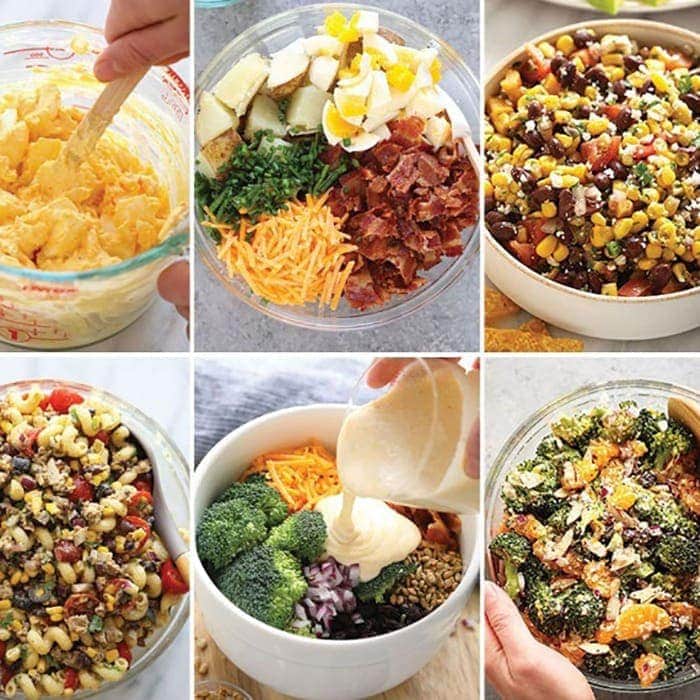 Get your vegetables in and make one of these healthy salad recipes for lunch or dinner this week! Meal prep a healthy broccoli salad recipe for dinner or a healthy potato salad for your next BBQ. Add any of these healthy salad ideas to your menu this week! Healthy Salad ...
Get your vegetables in and make one of these healthy salad recipes for lunch or dinner this week! Meal prep a healthy broccoli salad recipe for dinner or a healthy potato salad for your next BBQ. Add any of these healthy salad ideas to your menu this week! Healthy Salad ...





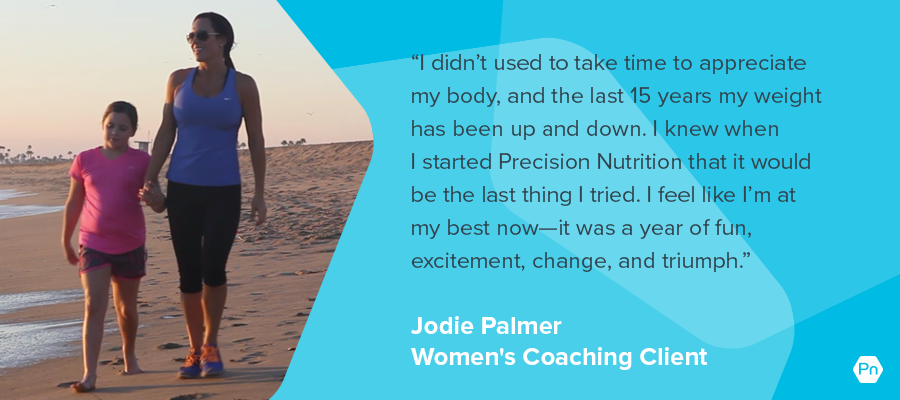
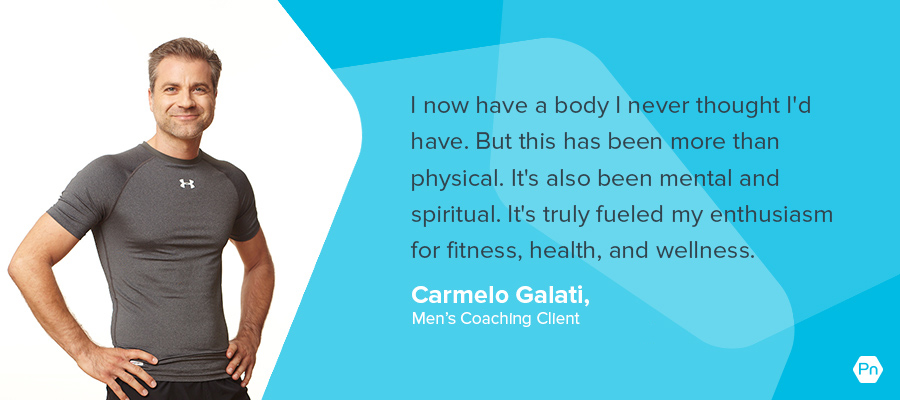

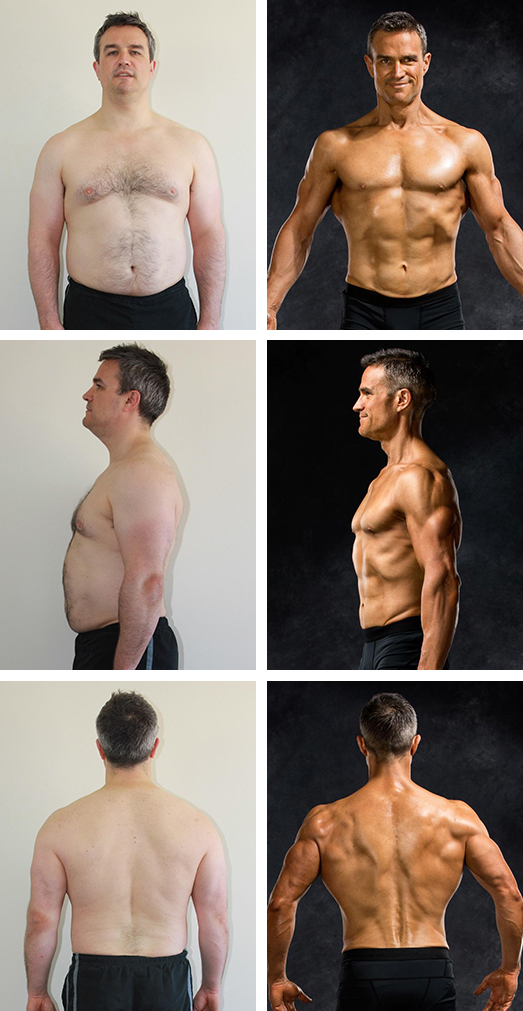
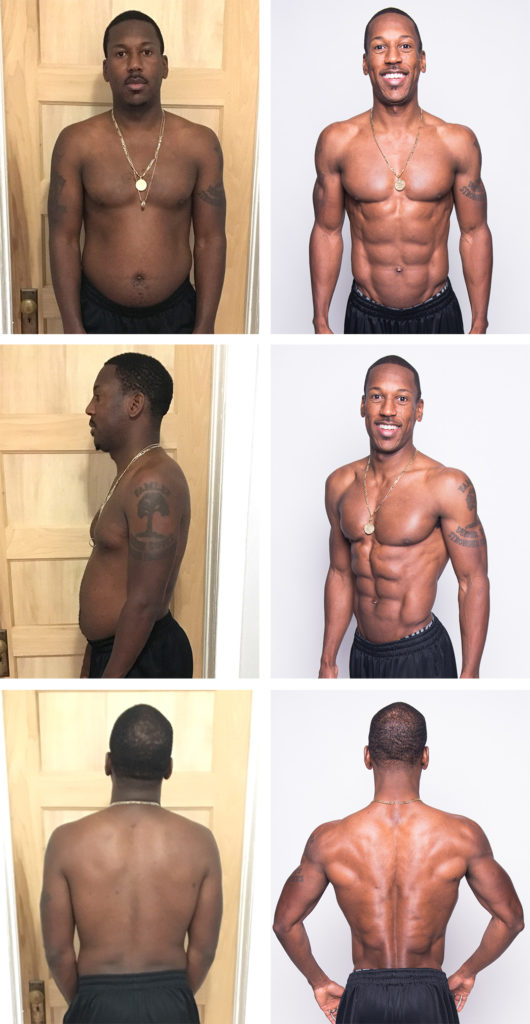
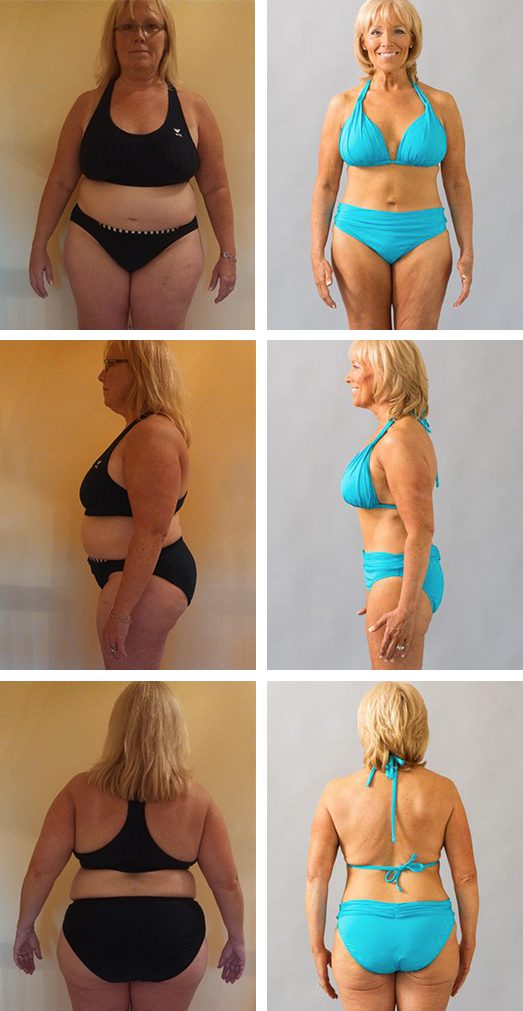
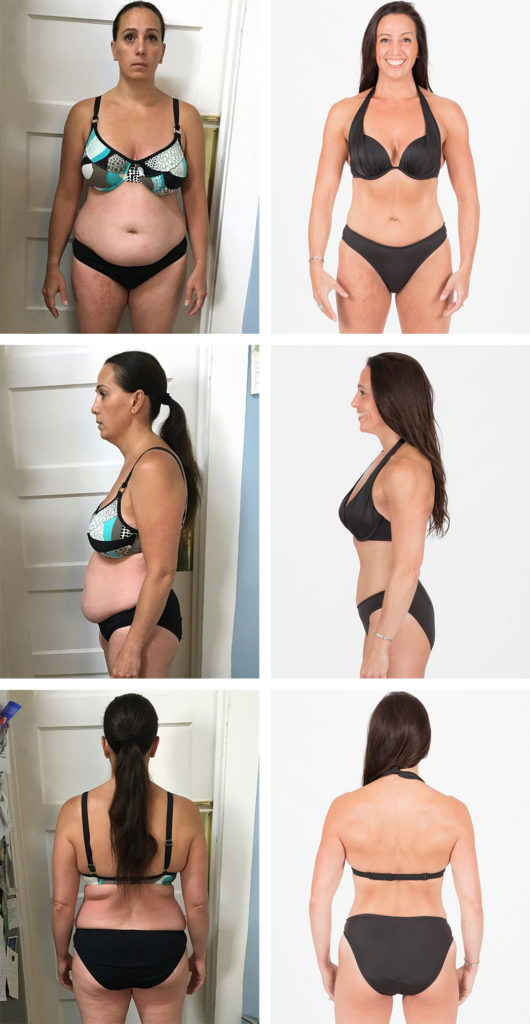
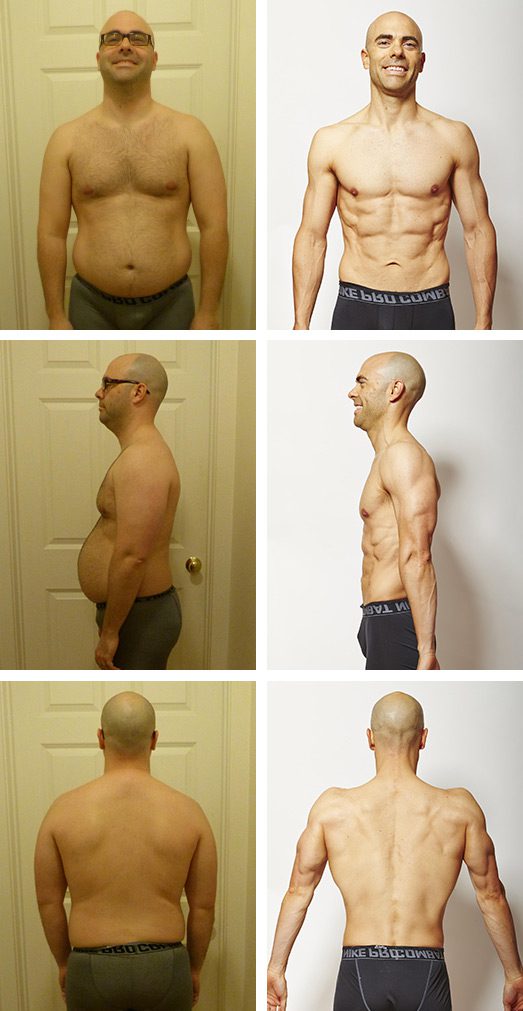




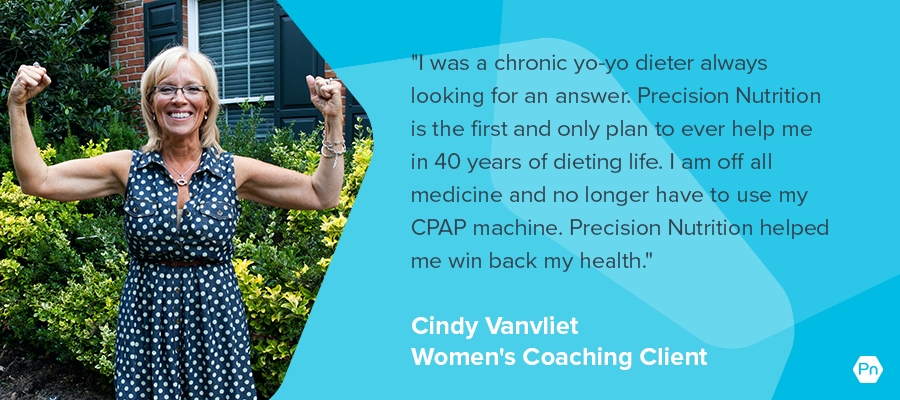
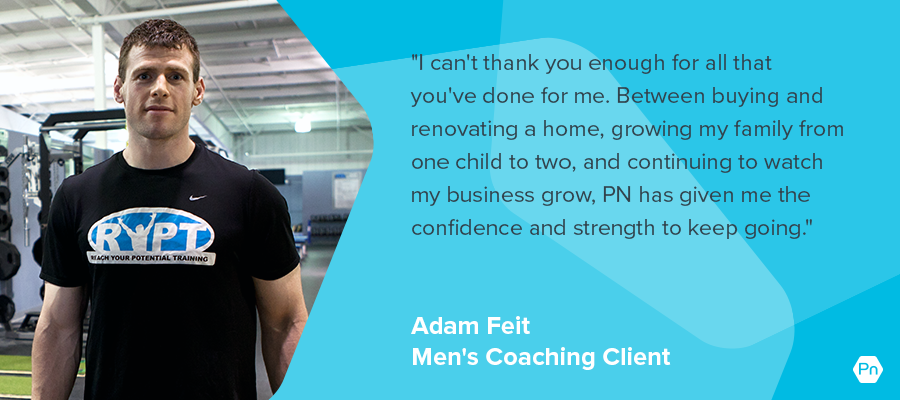
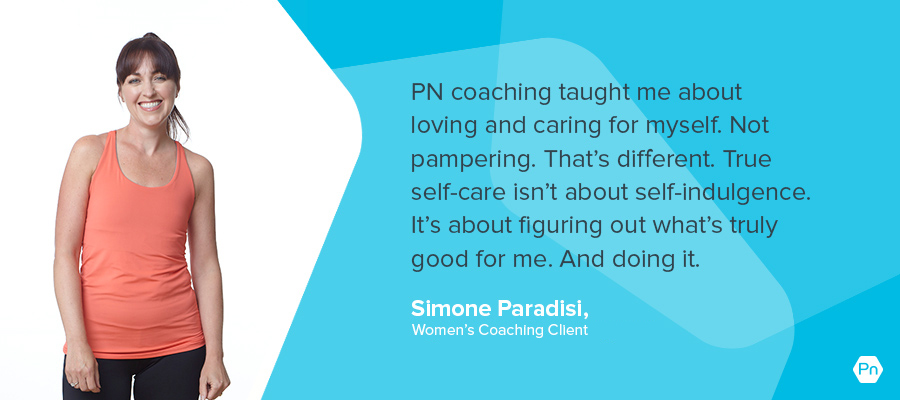
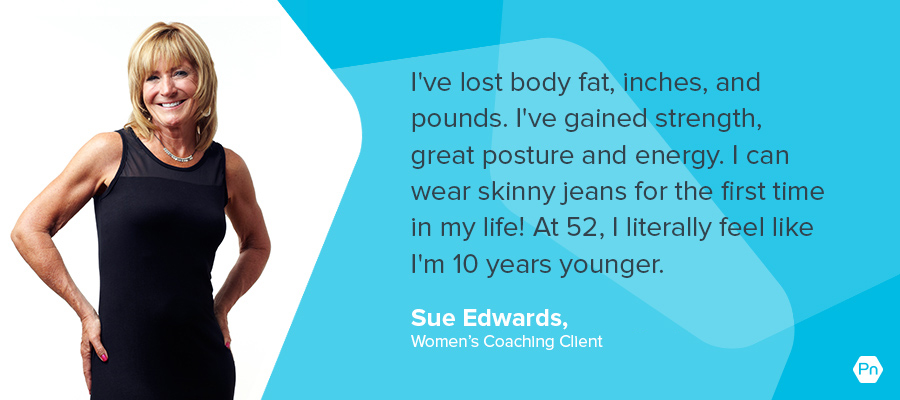
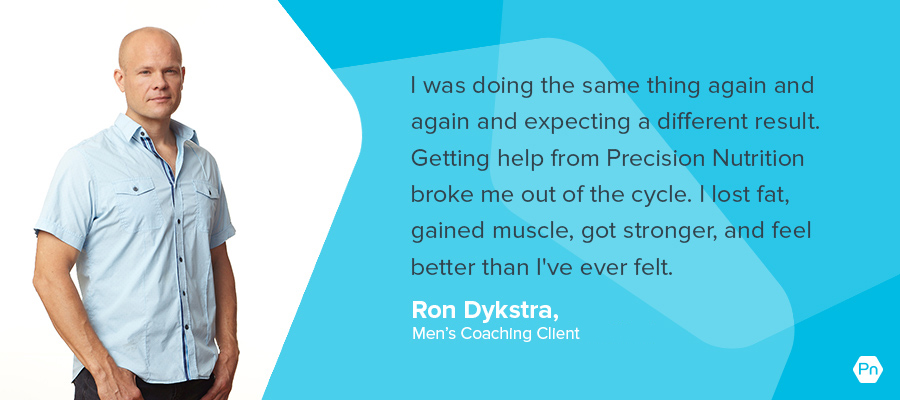
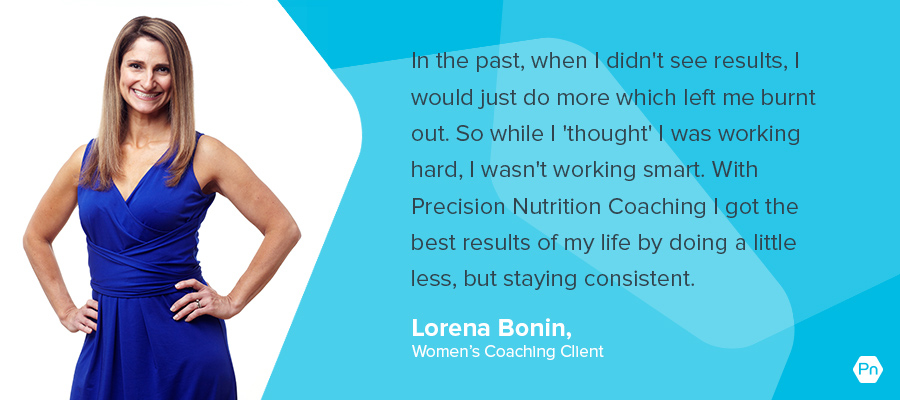
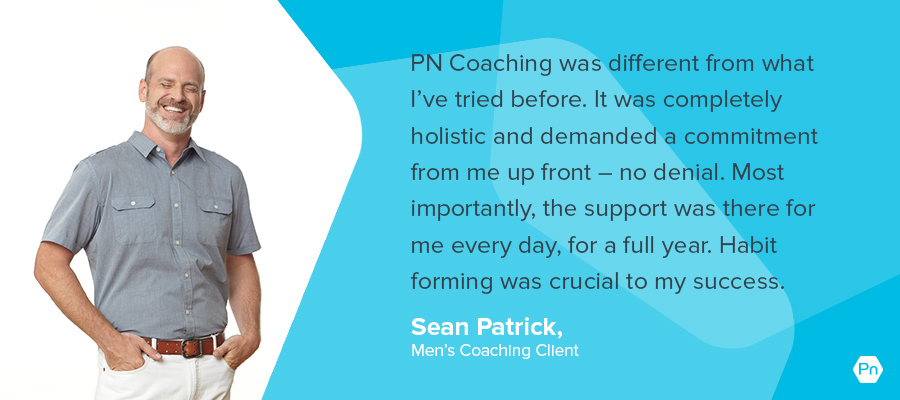

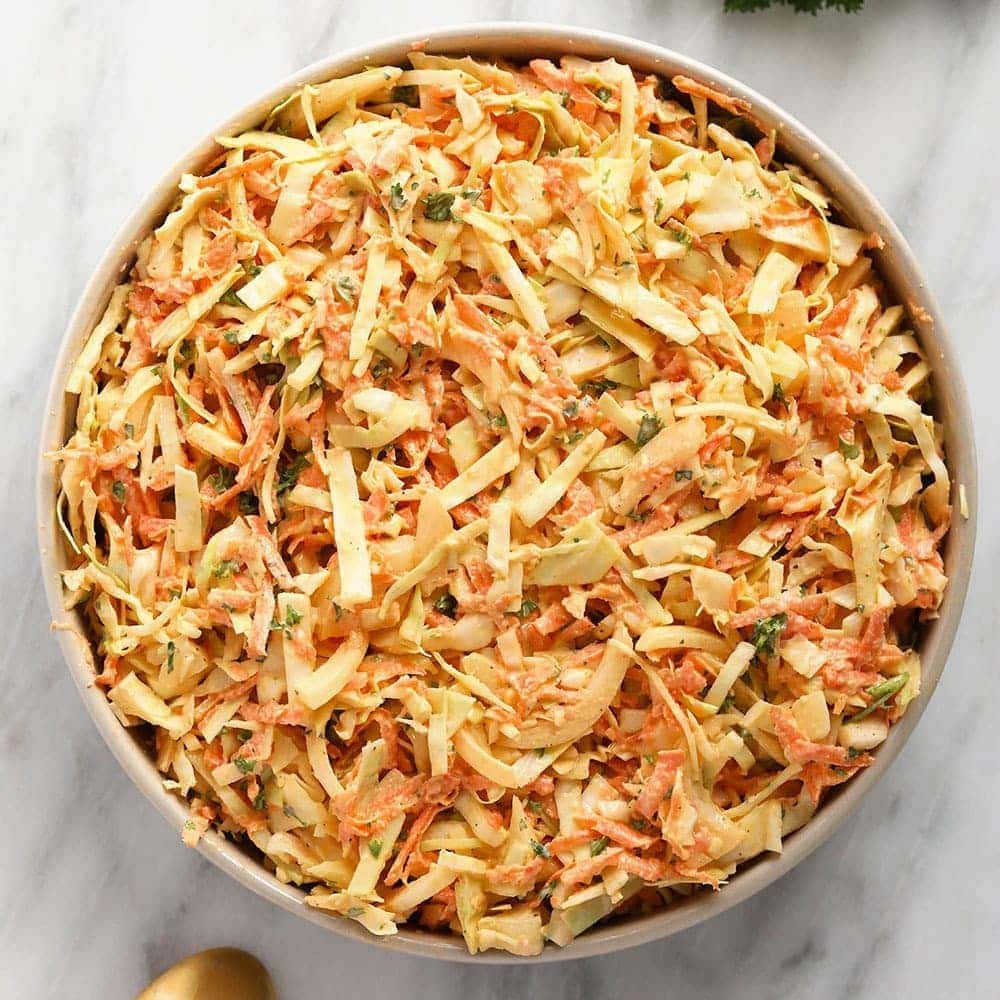 This Creamy Coleslaw Recipe is the perfect summer side dish for your next backyard BBQ! Whip up a batch of this delicious and easy coleslaw and pair it with our perfect grilled chicken legs and our foil-pack grilled red potatoes. Dinner is served! Simple Coleslaw Ingredients This coleslaw could not ...
This Creamy Coleslaw Recipe is the perfect summer side dish for your next backyard BBQ! Whip up a batch of this delicious and easy coleslaw and pair it with our perfect grilled chicken legs and our foil-pack grilled red potatoes. Dinner is served! Simple Coleslaw Ingredients This coleslaw could not ...